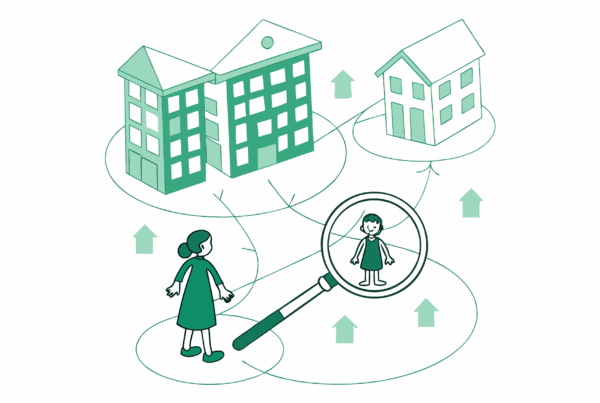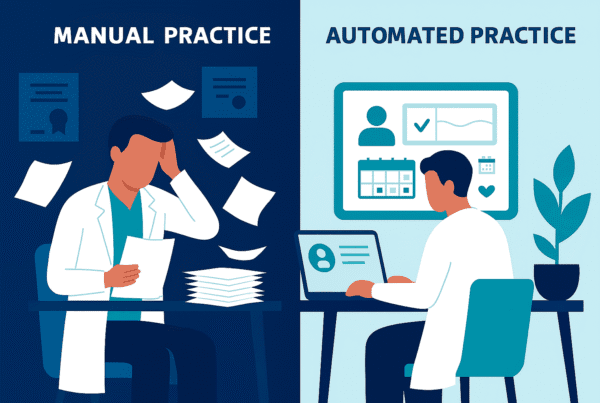Selling your home-based ABA practice in Maine presents a significant opportunity. The growing demand for ABA services has created a favorable moment for owners to realize the value of their hard work. This guide provides key insights into the Maine market, from valuation drivers to the sale process itself. Understanding these elements is the first step toward a successful transition that achieves your personal and financial goals.
Market Overview
The market for home-based ABA services in Maine is strong, driven by a combination of awareness and access. This creates a fertile ground for practice owners considering a sale. Understanding these forces can help you position your practice to attract the right buyers.
Surging Demand
The demand for high-quality ABA services in Maine is expanding. This is due to greater public awareness of autism spectrum disorder and better diagnostic pathways for children. For your practice, this means there is likely a larger pool of potential clients, a key indicator of future growth that is very attractive to buyers. It shows your business isn’t just stable. It’s positioned in a growing sector.
The Favorable Payer Landscape
In Maine, as elsewhere, insurance coverage for ABA therapy continues to expand. Strong, existing contracts with multiple insurance payers are a significant asset. They demonstrate stable, predictable revenue streams. Buyers look closely at your payer mix because it directly relates to cash flow reliability and reduces their risk. A practice with a healthy mix of commercial insurance contracts is viewed as a more secure investment.
Key Considerations for Maine ABA Sellers
Beyond the positive market trends, the unique characteristics of your practice will determine its attractiveness and final value. Preparing for a sale isn’t just about financials. It’s about showcasing a durable, well-run operation. Here are three areas that buyers will scrutinize.
- Your Clinical Team is Your Greatest Asset. Buyers are not just acquiring a client list. They are acquiring your team of qualified BCBAs and RBTs. A stable, well-trained team with low turnover is one of the most significant value drivers. We help owners tell this story by highlighting staff tenure, qualifications, and systems for managing caseloads to prevent burnout.
- Demonstrate Operational Efficiency. How smoothly does your practice run? Efficient scheduling, streamlined billing processes, and effective client management all contribute directly to profitability and, therefore, valuation. If you use robust EHR or billing systems, be prepared to showcase them. Buyers pay a premium for businesses that are easy to take over and operate.
- Understand Maine’s Specific Rules. Selling a business in Maine has specific legal requirements. For example, under Title 32, Chapter 69-B, a buyer may have a three-business-day right to cancel the contract after signing. Navigating these local regulations correctly is important for a smooth closing. It’s a detail that is easy to miss but can cause major issues if not handled properly.
Market Activity & Timing
The behavioral health sector, with ABA services at its core, is one of the most active areas for mergers and acquisitions. Both private equity groups and larger strategic providers are looking to expand their footprint in markets like Maine. This creates a competitive environment that can benefit sellers.
Investor Appetite is High
You do not need to be a large company to be an attractive target. Investors are looking for well-run, profitable ABA practices that provide a platform for growth. Your home-based model, with its client-centric focus and strong retention, is exactly what many buyers seek. They see the potential to build upon the foundation you’ve created.
Why Timing Matters
Valuation multiples for ABA practices can range from 3x to 8x of your adjusted profit, but these windows of peak valuation do not stay open forever. Selling when the market is active and demand for your services is high can make a massive difference in your final offer. Preparing your practice to go to market now positions you to take advantage of these favorable conditions.
The window of opportunity for optimal valuations shifts with market conditions.
The Sale Process Simplified
Selling your practice can feel like a complex journey, but it follows a structured path. Many owners tell us that understanding the basic steps demystifies the experience and gives them confidence. The process generally involves four main phases.
- Preparation and Valuation. This is the foundational stage. It involves organizing at least three years of financial statements, normalizing your earnings to reflect the true profitability, and establishing a clear, defensible valuation. This is also when we help you craft the story of your practice’s strengths and growth potential.
- Confidential Marketing. Your practice is not “listed” for sale. Instead, we identify and discreetly approach a curated list of qualified buyers. This protects your confidentiality with staff and clients while creating a competitive tension among interested parties to drive up the value.
- Due Diligence. Once you accept an offer, the buyer will begin a deep dive into your financials and operations. This is often where deals can fall apart if you are not prepared. Having your documentation in order beforehand is critical for a smooth process.
- Closing and Transition. This final phase involves finalizing legal documents, transferring ownership, and executing the transition plan for clients and staff. A well-designed plan ensures continuity of care and protects the legacy you have built.
What is Your ABA Practice Worth?
Understanding your practice’s value is the cornerstone of a successful sale. For ABA practices, the valuation is not based on revenue, but on profitability. The key metric is Adjusted EBITDA (Earnings Before Interest, Taxes, Depreciation, and Amortization). This figure represents your true cash flow after adding back personal expenses or one-time costs.
This Adjusted EBITDA figure is then multiplied by a number (the “multiple”) to determine the enterprise value. For home-based ABA practices, this multiple typically ranges from 3x to 8x. Where your practice falls in that range depends on several factors.
| Factor | Lower Multiple | Higher Multiple |
|---|---|---|
| Provider Model | Owner is the primary BCBA | Multiple associate BCBAs |
| Client Base | Concentrated in one area | Geographically diverse |
| Payer Mix | Heavy reliance on one insurer | Diverse mix of commercial payers |
| Growth | Stable, but flat | Demonstrable year-over-year growth |
A professional valuation does more than give you a number. It builds a case for that number, which is critical during negotiations.
A comprehensive valuation is the foundation of a successful practice transition strategy.
Planning for Life After the Sale
A successful sale is not just about the price you get. It is also about what happens the day after the deal closes for you, your staff, and your clients. Thinking about these elements early in the process ensures the final deal structure aligns with your long-term goals.
The Transition Plan
Buyers want a smooth handover. Having a clear plan for transitioning client relationships and supporting your staff is important. This protects the continuity of care and demonstrates to the buyer that the practice’s value will be sustained after you depart. Many owners choose to stay on for a defined period (e.g., 6-12 months) to ensure this happens seamlessly.
Tax Implications
The structure of the deal has a massive impact on your after-tax proceeds. An asset sale versus an entity sale can have very different tax consequences. Planning ahead with a specialist can help structure the transaction in a way that legally minimizes your tax burden, allowing you to keep more of your hard-earned money.
Your Next Chapter
What do you want to do after the sale? Some owners want a clean break, while others want to remain involved clinically without the stress of running the business. Defining this personal goal upfront helps us find a buyer whose vision for the practice aligns with yours.
Your specific goals and timeline should drive your practice transition strategy.
Frequently Asked Questions
What is driving the demand for home-based ABA services in Maine?
The demand is growing due to increased public awareness of autism spectrum disorder and improved diagnostic pathways for children. This results in a larger potential client base and future growth prospects, which attract buyers.
How does insurance coverage affect the value of my ABA practice in Maine?
Insurance coverage is expanding in Maine, and having strong contracts with multiple insurance payers ensures stable and predictable revenue streams. Buyers consider a healthy payer mix a sign of cash flow reliability and reduced investment risk.
What are key factors buyers look at when valuing a home-based ABA practice?
Buyers focus on the stability and qualifications of the clinical team, operational efficiency including scheduling and billing systems, and compliance with Maine’s specific legal requirements which can impact the sale process.
How is the value of my ABA practice determined?
The value is based on Adjusted EBITDA — your true profitability after adjustments — multiplied by a market multiple which typically ranges from 3x to 8x. Factors influencing the multiple include provider model, client base diversity, payer mix, and growth trends.
What should I plan for after selling my ABA practice?
Plan for a smooth transition that maintains client care continuity and staff support, consider tax implications of the deal structure, and define your personal goals for life after the sale to align with the buyer’s vision for the practice.



